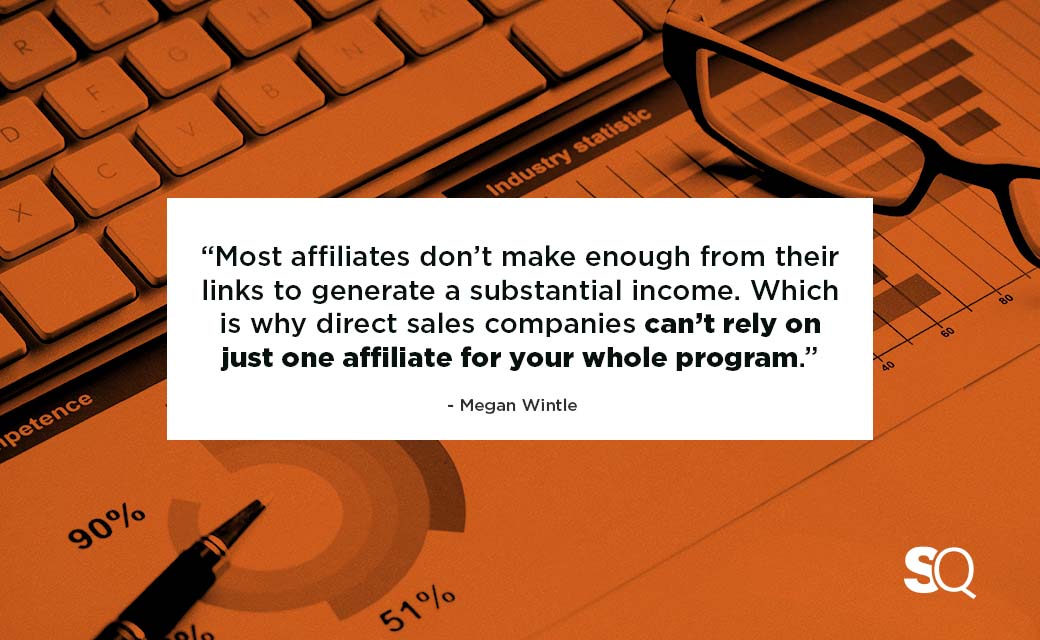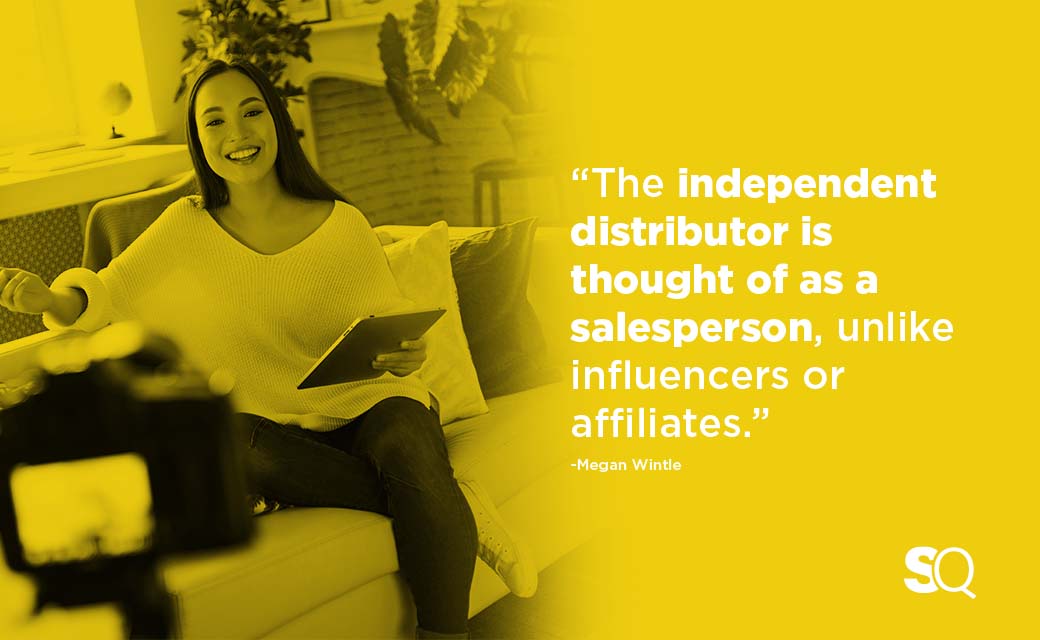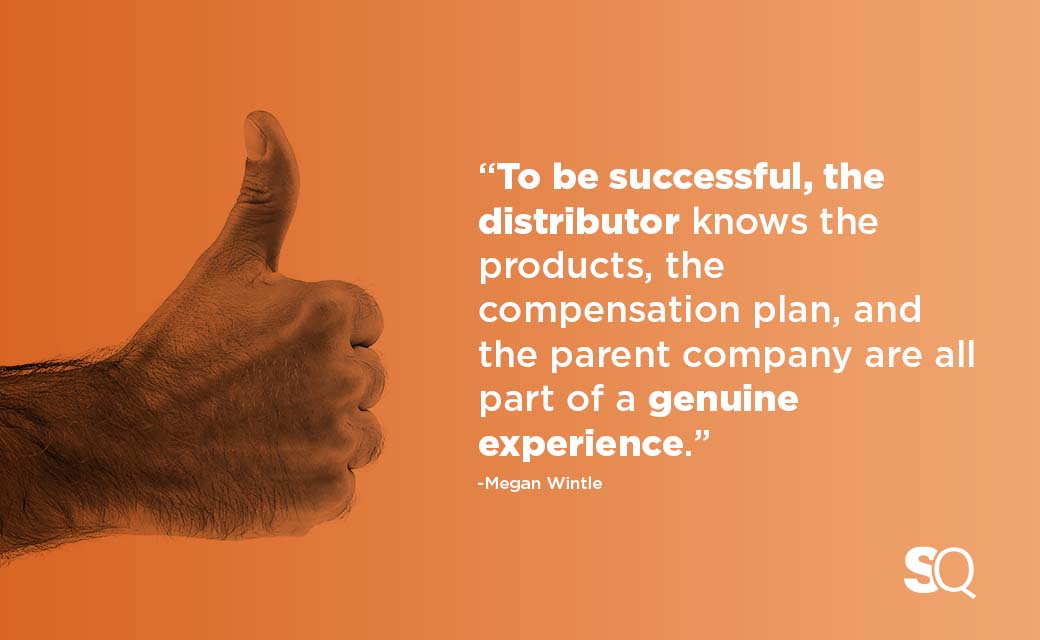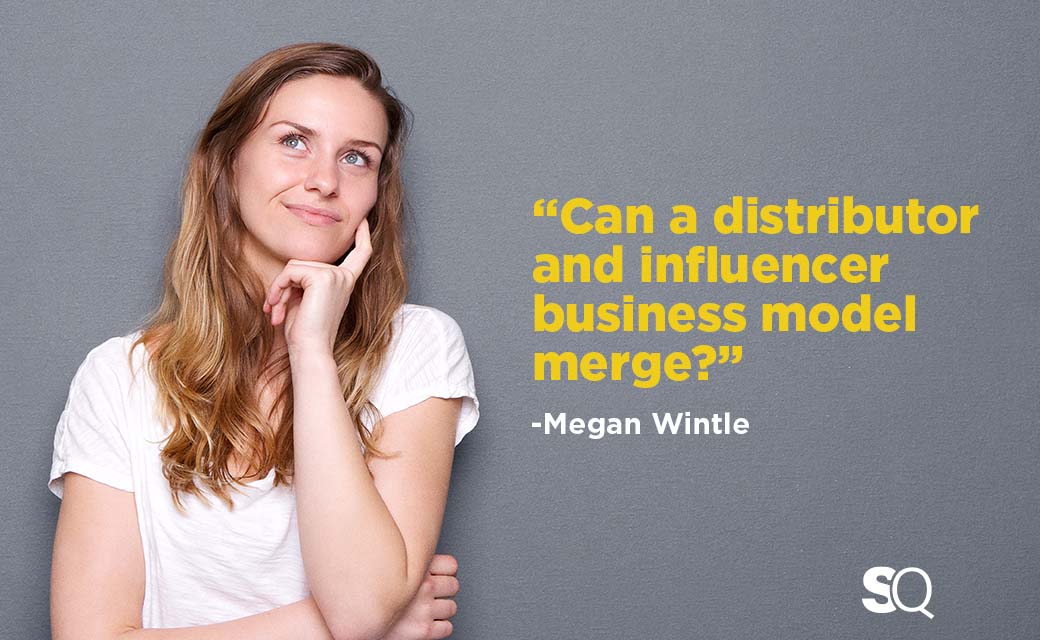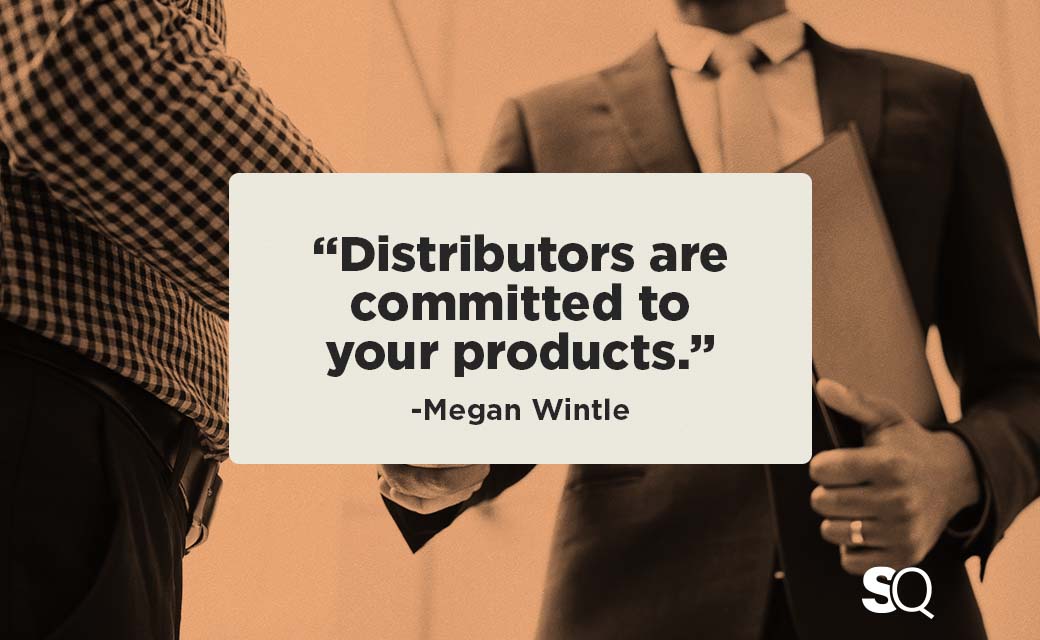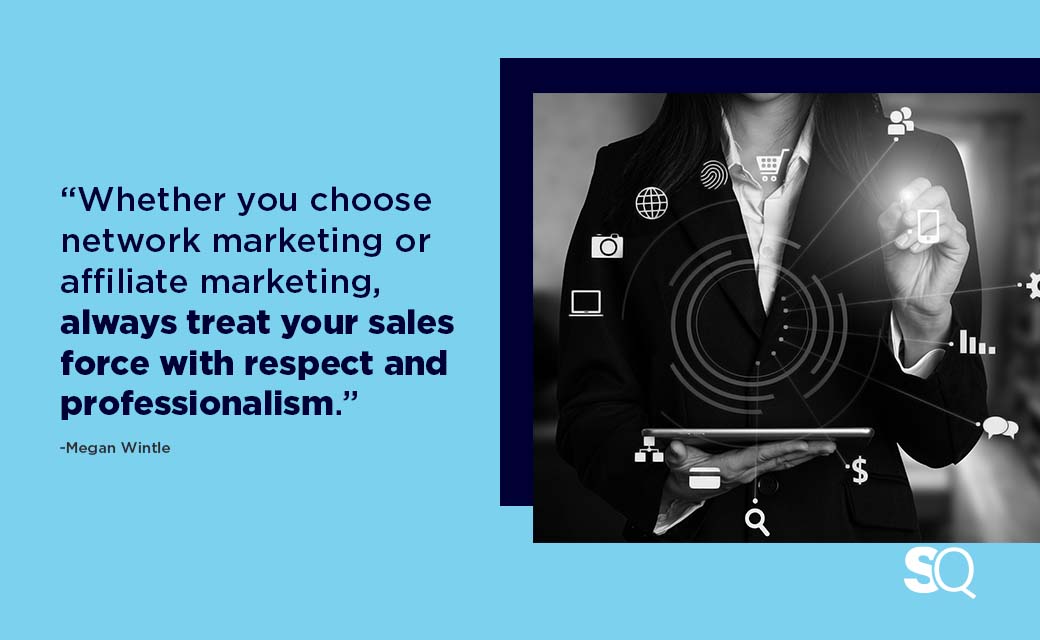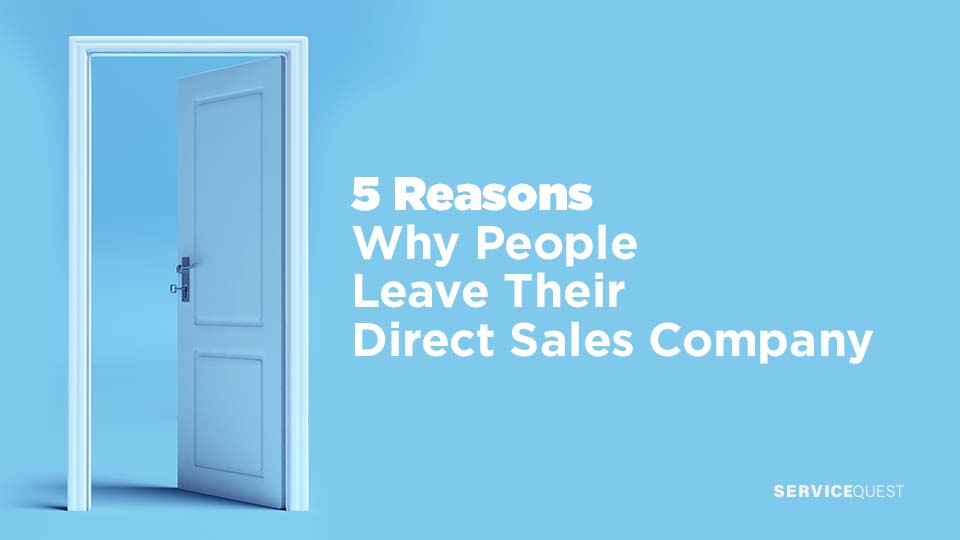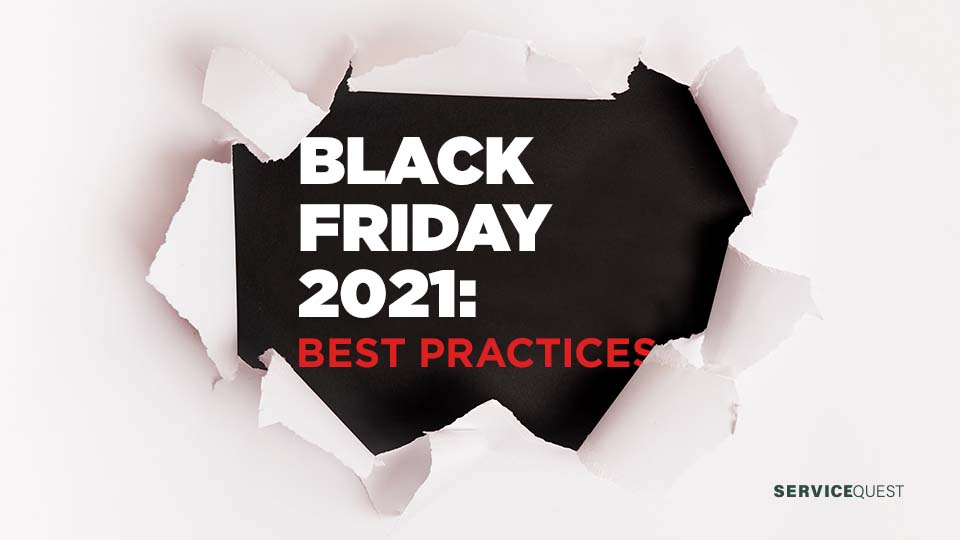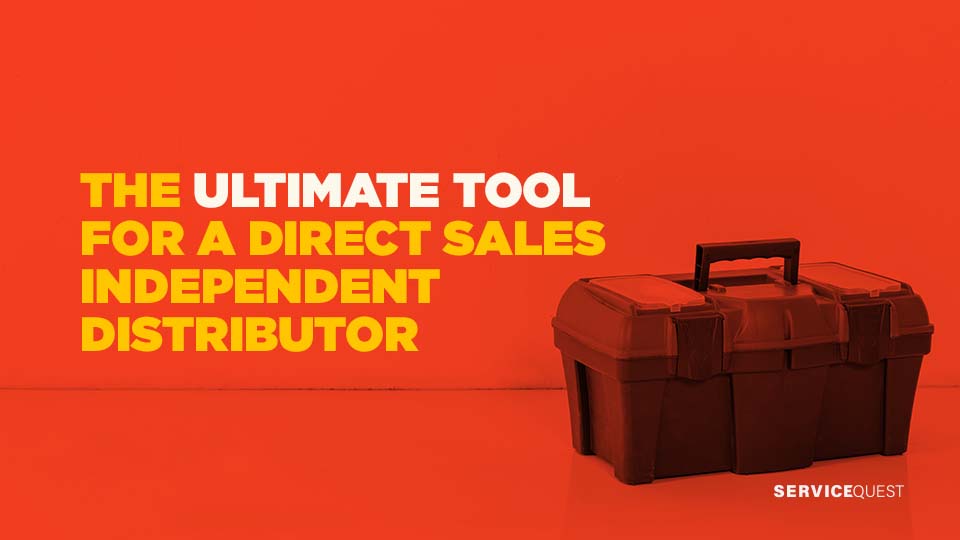
A NOTE FROM TERREL on Independent Distributor Sales and Affiliates
Every company has a purpose. The purpose of direct sales is to create and keep a customer. That means there are two basic functions: marketing and innovation that attract and develop productive distributors who find and support customers.
Megan opens the door here to a long-overdue discussion about roles and differences of influencers and independent distributors. At two ends of the spectrum, we find algorithmic marketing – electronic commerce far away from human contact, and influencer marketing – humans connecting with humans through modern social means.
We invited Megan to share her insight because of her experience in both affiliate and distributor sales. We commit to support you in creating happy customers and productive, successful entrepreneurs who gather those customers for clients.
Affiliates vs Independent Distributor Sales
What a Direct Sales Company Should Consider Before Using Affiliate
Want to expand your marketing and sales efforts? You must understand the difference between an affiliate and a distributor. Both types of salespeople are effective in the direct sales channel, and they have some key differences.
In this article, we’ll explore:
- Affiliate Marketing
- Distributor Marketing
- Combining Affiliates and Distributors
- Which Should You Choose?
Affiliate Marketing
First, let’s look at affiliate marketing.
What is Affiliate Marketing?
Affiliate marketing is an advertising model where a company compensates third-party individuals to generate traffic or leads to the company’s products and services. The third-party individuals are affiliates. They earn commission fees when someone purchases products using their link.
Most affiliates have a website, social media feed, email list, or other digital methods to communicate to their audience what products they are promoting. Sometimes affiliates market any product or service they can use to earn a commission. However, the most effective affiliate marketing is Involved Affiliate Marketing. This means they’ve used a product or service, truly believe in it, and personally recommend it to their audience. They share their expertise and evangelize on behalf of the product.
Big Sales Benefit of Affiliates
When I worked for a direct sales company, we noticed a sudden spike in sales. The spike caught my attention, so I began investigating. What about our marketing efforts produced the sudden increase in sales?
To my surprise, I found a mommy blogger who had written about her own research of the best essential oils. She tested oils from different companies for this series of posts and when she got to the end of the research, she selected ours!
For the blog readers, by the time they followed her journey and came to the end of her series, they were ready to buy because they were committed! Therein lies the power of affiliate marketing.
As an affiliate, her blog posts generated millions and millions of dollars in sales. In turn, she made millions on commission. Soon, other affiliate bloggers started joining and talking about the same topic. What a unicorn! She hit the market at the right time. And that taught me a valuable lesson about Affiliate Marketing: you can’t rely on just one affiliate for your whole program.
Distributor Marketing
Now let’s talk about independent distributor sales in the MLM sales channels. You may call them consultants, demonstrators, social sellers, etc. No matter the name, these individuals distribute products, just like their affiliate counterparts. They too get commission on their product sales, but they are also encouraged to sign up or recruit other team members to sell products and build their own team.
Depending on the compensation plan for the commission structure, the distributor could be making more money from their team sales than their own sales. The independent distributor is thought of as a salesperson, not just a referrer or influencer, like affiliates. Top distributors in direct sales companies have a lot of influence and power because of the team or downline they have built. Many times the teams are very loyal to their team leader. This challenges the balance. Is the team member loyal to the leader and other team members or are they loyal to the brand and company?
Because every distributor is independent, the risk of copy-cat is much greater for the company.
Example of Independent Distributor Sales Downside
Let me give you an example: At a different direct sales company, one of our top producers caught the eye of our corporate leader and we asked him to join the team.
On one occasion, he was present during product testing to determine expiration dates. Secretively—and against our request—he took pictures during our confidential testing process. He wasn’t a good fit for the corporate job. When he left, he started rumors about the company and used confidential pictures, out of context, claiming we were selling expired products.
He was motivated to see his new downline and direct sales company—our competitor—gain customers by discrediting us. We issued a Cease and Desist, but the damage was done. For a newer company, this was a huge setback.
On the other hand, I’ve also seen distributors who are loyal to the company and become evangelists for the products and the compensation plan.
They are the ones who truly are in the business for the products and the money. They understand the balance of using and loving the product and sharing it with others to help benefit their lives. To be successful in their business, they know the products, compensation plan, and the parent company is all part of a genuine experience.
Just like the Mommy Blogger, distributors who rise up in the company do so because they are passionate about their products and straightforward with their customers.
Combining Affiliates and Distributors
There are benefits for both affiliates and distributors. So, why not have both?
There are two schools of thought, let me explain both!
Distributors Partner with Influencers
In this idea, an influencer can endorse a product through the sales of a distributor. For example, they would explain to their audience in order to place an order they must reach out to [distributor’s name].
If the distributor already has a connection with an influencer who can be their affiliate this can work out well for both parties. The distributor would then compensate the affiliate for the sales that were generated through their connection.
The distributor would also need to work with the influencer on how to promote the products. If the direct sales company wants to pursue a distributor/influencer relationship, the role of the company is to educate its distributors on how to tap into that market. It doesn’t have to be complicated: it can be as simple as asking an influencer to sample their product and provide a review!
Corporate Starts with Affiliate and Shifts to Distributor Marketing
Starting with affiliates can help the direct sales company—or any company—create interest and traffic around the products and brand.
When the company reaches a certain point, they can then transition to having anywhere from one or two products to their whole product line that is now being sold directly through distributors.
This is a good model for e-commerce because there hasn’t already been an investment in a storefront or a retail building. You can create specific nurturing campaigns for the affiliates to use to attract more distributors and create a commission structure based on exclusivity (meaning they aren’t promoting additional brands) and sales.
Corporate Starts with Distributor and Shifts to Affiliate Marketing
The very opposite exists is also an option. A company starts out with distributors and then moves into affiliate marketing or placing products in a retail store.
Potential problems occur when the distributors start to feel as if the company is taking away sales from the distributors’ efforts. If a product is available at Costco or Target, that devalues the customer experience of going through a distributor. Also harmful is if the consumer can get the product cheaper at the retail store.
In the same way, if the company starts adding affiliate marketing through influencers, the distributor may see their personal team sales plateau or decline if the influencers have a big enough presence and following to lure customers away from the regular distribution channels.
The benefit of having distributors is they are committed to your product. They will take the time to explain and demonstrate the product, in-person or online. Then the user can see the process or understand the benefits and has a closer relationship with the product.
Plus many direct sales companies offer an auto-ship or monthly product bundle for repeat orders which benefit the distributor. If the product is consumed, then the need for repeat orders increases, and setting customers up with the auto-ship process is valuable. As the customer base grows, influencers are not as accessible to offer individualized time with each customer. The influencer isn’t recruiting and training downline, so their involvement isn’t as time-consuming and is also less personal.
With both affiliates and distributors, offering nurturing campaigns that are just for them, when they hit certain ranks or sales levels, is another way to increase sales. Offering new products before they are launched, or inviting them to be part of a focus group or study is another strategy that increases loyalty.
Affiliate vs. Distributor Direct Sales: Which should you choose?
Affiliates or distributors are determined by the company you want to build. Each strategy is designed to attract the right partner. Whether you are e-commerce or direct sales, the goal is growth!
Over time and as you grow, you may need to pivot and adjust your strategy. When you do, make sure you’re making decisions that are in the best interest of your customers and sales force. Whether you choose network marketing or affiliate marketing always treat your sales force with respect and professionalism.

